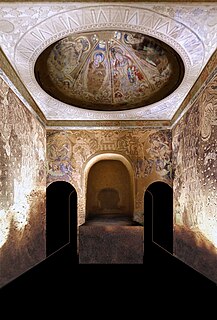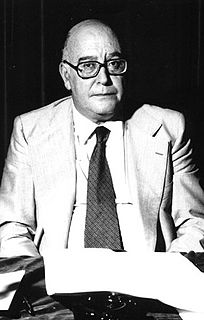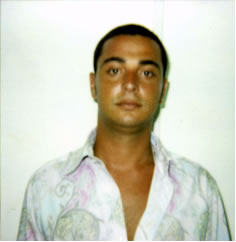| Look up cupola or kupola in Wiktionary, the free dictionary. |
A cupola is a relatively small, most often dome-like, tall structure on top of a building.
Contents
Cupola may also refer to:
| Look up cupola or kupola in Wiktionary, the free dictionary. |
A cupola is a relatively small, most often dome-like, tall structure on top of a building.
Cupola may also refer to:

In architecture, a cupola is a relatively small, most often dome-like, tall structure on top of a building. Often used to provide a lookout or to admit light and air, it usually crowns a larger roof or dome.
Mafioso may refer to:
Omertà is a Southern Italian code of silence and code of honor and conduct that places importance on silence in the face of questioning by authorities or outsiders; non-cooperation with authorities, the government, or outsiders, especially during criminal investigations; and willfully ignoring and generally avoiding interference with the illegal activities of others. It originated and remains common in Southern Italy, where banditry or brigandage and Mafia-type criminal organizations have long been strong. Similar codes are also deeply rooted in other areas of the Mediterranean, including rural Spain, Crete in Greece, and Corsica, all of which share a common or similar historic culture with Southern Italy.

The Cupola is an ESA-built observatory module of the International Space Station (ISS). Its name derives from the Italian word cupola, which means "dome". Its seven windows are used to conduct experiments, dockings and observations of Earth. It was launched aboard Space Shuttle Endeavour's mission STS-130 on 8 February 2010, and attached to the Tranquility module. With the Cupola attached, ISS assembly reached 85 percent completion. The Cupola's central window has a diameter of 80 cm (31 in).
The Sicilian Mafia, also simply known as the Mafia and frequently referred to as La Cosa Nostra by its members, is an Italian Mafia-terrorist-type organized crime syndicate and criminal society originating in the region of Sicily and dating to at least the 19th century. It is a loose association of criminal groups that share a common organisational structure and code of conduct, and present themselves to the public under a common brand. The basic group is known as a "family", "clan", or cosca. Each family claims sovereignty over a territory, usually a town or village or a neighbourhood (borgata) of a larger city, in which it operates its rackets. Its members call themselves "men of honour", although the public often refers to them as mafiosi. By the 20th century, following wide-scale emigration from Sicily, mafiosi established gangs in North and South America which replicate the traditions and methods of their Sicilian ancestors. Since the 90s, the Sicilian mafia has lost much of its influence in favor of the 'Ndrangheta, originating from the nearby region of Calabria, which is today the most powerful criminal organization in Italy.
The Don may refer to:

The Sicilian Mafia Commission, known as Commissione or Cupola, is a body of leading Sicilian Mafia members to decide on important questions concerning the actions of, and settling disputes within the Sicilian Mafia or Cosa Nostra. It is composed of representatives of a mandamento that are called capo mandamento or rappresentante. The Commission is not a central government of the Mafia, but a representative mechanism for consultation of independent Mafia families who decide by consensus. "Contrary to the wide-spread image presented by the media, these superordinate bodies of coordination cannot be compared with the executive boards of major legal firms. Their power is intentionally limited [and] it would be entirely wrong to see in the Cosa Nostra a centrally managed, internationally active Mafia holding company," according to criminologist Letizia Paoli.
Copula may refer to:

The Corleonesi Mafia clan was a faction within the Corleone family of the Sicilian Mafia, formed in the 1970s. Notable leaders included Luciano Leggio, Salvatore Riina, Leoluca Bagarella and Bernardo Provenzano.
Salvatore Greco may refer to:

Antonino "Nino" Rotolo is a Sicilian Mafia boss from the Pagliarelli area in Palermo that traditionally was under the control of the Motisi Mafia family. Rotolo was the underboss of Matteo Motisi, but according to some pentiti he was the de facto leader representing the mandamento on the Sicilian Mafia Commission. In 2006, the police deduced that Rotolo — Number 25 in the numbered code of Mafia boss Bernardo Provenzano — had become a key figure in Cosa Nostra's hierarchy.

The Greco Mafia family is historically one of the most influential Mafia clans in Sicily and Calabria, from the late 19th century. The extended family ruled both in Ciaculli and Croceverde Giardini, two south-eastern outskirts of Palermo in the citrus growing area and also rural areas of Calabria where they controlled the olive oil market. Members of the family were important figures in the Sicilian Cosa Nostra and Calabrian 'Ndrangheta. Salvatore "Ciaschiteddu" Greco was the first ‘secretary’ of the Sicilian Mafia Commission, while Michele Greco, also known as The Pope, was one of his successors.

Gerlando Alberti, nicknamed 'u Paccarè, was a member of the Sicilian Mafia. He belonged to the Porta Nuova family in Palermo headed by Giuseppe Calò.

Giovanni "Gianni" Nicchi is a member of the Sicilian Mafia. Despite his young age – he is nicknamed 'u picciutteddu – he is considered to be one of the leading mafiosi of Cosa Nostra in Palermo. He was on the "most wanted list" of the Italian ministry of the Interior since 2006, until his arrest on 5 December 2009.

A cupola or cupola furnace is a melting device used in foundries that can be used to melt cast iron, Ni-resist iron and some bronzes. The cupola can be made almost any practical size. The size of a cupola is expressed in diameters and can range from 1.5 to 13 feet. The overall shape is cylindrical and the equipment is arranged vertically, usually supported by four legs. The overall look is similar to a large smokestack.

Gaetano Fidanzati was a boss of the Resuttana mandamento of the Sicilian Mafia in Palermo. Gaetano Fidanzati was on the Italian Ministry of the Interior's most wanted list from 2008 until his arrest on 5 December 2009.
A cupula is a small, inverted cup or dome-shaped cap over a structure, including:
A mafia is an ethnic, family or culture-based organized crime enterprise.
Settimo Mineo is an Italian member of the Sicilian Mafia Pagliarelli mandamento from Palermo.